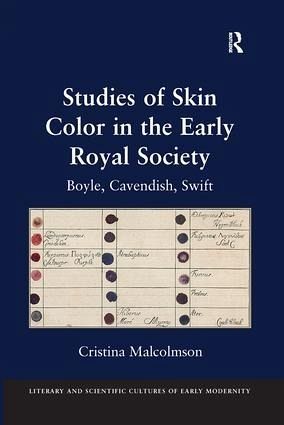
Studies of Skin Color in the Early Royal Society
Boyle, Cavendish, Swift
Versandkostenfrei!
Versandfertig in 6-10 Tagen
61,99 €
inkl. MwSt.
Weitere Ausgaben:

PAYBACK Punkte
31 °P sammeln!
Arguing that the early Royal Society moved science toward racialization by giving skin color a new prominence as an object of experiment and observation, Cristina Malcolmson provides the first book-length examination of studies of skin color in the Society. She also brings new light to the relationship between early modern literature, science, and the establishment of scientific racism in the nineteenth century. Malcolmson demonstrates how unstable the idea of race remained in England at the end of the seventeenth century, and yet how extensively the intertwined institutions of government, col...
Arguing that the early Royal Society moved science toward racialization by giving skin color a new prominence as an object of experiment and observation, Cristina Malcolmson provides the first book-length examination of studies of skin color in the Society. She also brings new light to the relationship between early modern literature, science, and the establishment of scientific racism in the nineteenth century. Malcolmson demonstrates how unstable the idea of race remained in England at the end of the seventeenth century, and yet how extensively the intertwined institutions of government, colonialism, the slave trade, and science were collaborating to usher it into public view. Malcolmson places the genre of the voyage to the moon in the context of early modern discourses about human difference, and argues that Cavendish's Blazing World and Swift's Gulliver's Travels satirize the Society's emphasis on skin color.














